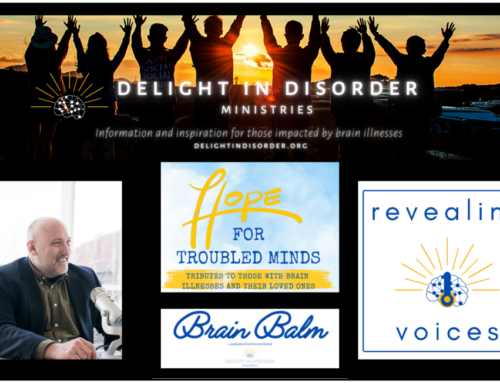Some time ago a woman asked a young pastor to perform an exorcism on her. She was tormented by a commanding inner voice and she had come to believe she was possessed by a demon. He didn’t know what to do. He hadn’t taken any “Exorcism 101” class at seminary. He wasn’t sure he even believed in demon spirits. Sure, Jesus cast out demons. Paul wrote of evil “powers and principalities” that subverted a believer’s faith. The history of Christian literature is littered with stories of possessed persons. But in the modern world? Didn’t demons die with the Enlightenment?
But the woman was persistent. She was clearly vexed and as her pastor he didn’t want to simply dismiss her need. So, he consulted a mentor who had many years of experience in pastoral ministry. This pastor advised him to ask three questions to better assess if the disease was at its root a spiritual attack.
Have you sought a psychiatric evaluation?
Inner voices may well be an indication of psychosis. When I was first diagnosed with a mental illness, I felt a sense of relief that it could be at least partially explained by medical science. I didn’t feel as doomed that I had been specifically targeted by demon spirits, that my faith was in jeopardy, that God had abandoned me to the Evil One. It’s no picnic to be psychotic, but I learned that with medication and therapy, I could manage it and continue to grow in my walk with Christ.
Many professing believers are reluctant, even recalcitrant to see a psychiatrist. This science of the mind has been historically anti-religious, viewing faith as a weak-minded crutch at best, a psychotic delusion at worst. I once interviewed a psychologist who told me, “Religious faith is an indication of cognitive rigidity.” Needless to say, I didn’t become his patient.
Anti-Christian psychiatrists do exist, but they are few and far between. The overwhelming majority of psychiatrists are exclusively interested in brain chemistry, not the state of our souls. They stick to what they know best — diagnosing brain disorders and effectively treating them with medication designed to create better balance.
Do you take medication as prescribed?
There have been incredible advances in psychotropic medication since I was first diagnosed in the early 1990s. Yet many with mental health diagnoses still struggle taking them, for many reasons. The meds I have taken through the years have produced unwanted side effects. Weight gain. Involuntary convulsions. The prospect of organ damage.
Added to this, these drugs dull my senses. Anti-depressants have sometimes been referred to as “happy pills.” There is nothing in them that produces happiness. They may ease the awful burden of emotional blackness, but they do not give you a high like some illicit drugs do. On the flip side, mood stabilizers I am prescribed to prevent mania actually rob me of good feelings. Little wonder so many of us with mental illness go off our meds.
Yet, it is essential that we follow our doctors’ orders and take medication as prescribed. Brain chemistry is so volatile that if we miss even one dose, it may take weeks to re-establish the semblance of balance. Missing meds can have a domino effect such that we miss more and more and before we know it, we have a full-blown psychotic episode.
Are you seeing a trained therapist/counselor?
Pastors can be very effective at responding to spiritual needs, but very few have the training or the time to engage in the kind of extensive therapy those of us disturbed by inner voices need. When I first entered pastoral ministry, I tried to be all things to all people. When someone came to me with serious emotional needs, I would try to fix them. I felt it was part of my calling. I quickly learned, however, that without the proper training and the clear boundaries a therapist provides, more often than not I caused harm — to others and to myself.
I have been in therapy for over 30 years now. I have seen a good many therapists in that time — some good, some bad. My current therapist is the best I’ve had. He is a Christian and a faithful leader at his church. More importantly, he is trained in the science of psychology with decades of experience treating all sorts of behavioral disorders. He is able to listen carefully in our sessions and sort through what is me and what is my illness. He then offers encouragement and direction consistent with my faith and beneficial to my health.








Leave A Comment